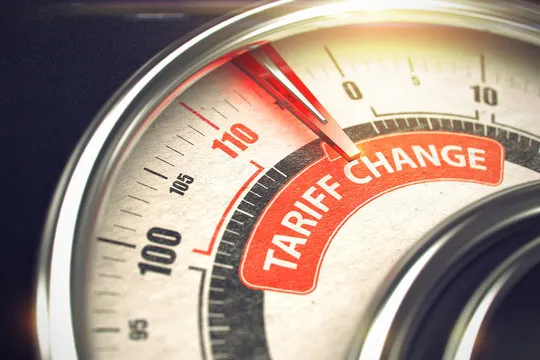What Are Trump’s New Tariffs About?
President Donald Trump is once again shaking up global trade with new tariffs targeting Canada, Mexico, and China. These tariffs are expected to have widespread effects on businesses, consumers, and the economy as a whole. But why is Trump imposing them, and how will they impact everyday life? Let’s break it down.
The Countries Affected: Why Canada, Mexico, and China?
Trump’s tariffs are aimed at three of the United States’ biggest trading partners. Each country has a different reason for being targeted:
1. Canada
- The U.S. and Canada have had a long-standing trade partnership, but tensions have risen over issues like dairy imports, aluminum, and lumber.
- Trump believes Canada has taken advantage of trade deals, and tariff on key industries are meant to “level the playing field.”
2. Mexico
- As one of America’s biggest suppliers of cars, steel, and agricultural products, Mexico is a major player in U.S. trade.
- Trump claims Mexico’s trade practices hurt American businesses, particularly in manufacturing and farming.
- The new tariff could also be tied to ongoing disputes over immigration policies.
3. China
- The U.S.-China trade war has been ongoing, with both countries imposing tariff on each other.
- Trump argues that China engages in unfair trade practices, including intellectual property theft and currency manipulation.
- New tariffs could be a way to pressure China into making trade concessions.

Key Industries Affected: What Will Get More Expensive?
These tariff won’t just affect governments—they’ll hit industries and everyday consumers. Here’s how:
1. Automobiles
- Car manufacturers rely on imports from Mexico and Canada.
- Higher tariff could mean more expensive cars and trucks in the U.S.
- American-made cars may see price hikes due to higher costs for raw materials.
2. Agriculture
- Farmers depend on trade with Canada, Mexico, and China.
- Tariffs could lead to retaliatory tariff from these countries, reducing demand for U.S. crops like soybeans, corn, and wheat.
- Food prices may increase as a result.
3. Consumer Goods
- Many everyday products, from electronics to clothing, are imported from China.
- Higher tariffs on Chinese goods mean higher retail prices for American shoppers.
- Companies may pass these costs onto consumers, making everything from smartphones to furniture more expensive.

Economic and Political Reactions
Supporters Say: ‘America First’
- Supporters of the tariffs argue they will protect American jobs and industries.
- Trump’s administration claims tariffs will force companies to manufacture more goods in the U.S., boosting the economy.
- Some economists believe tariffs could lead to better trade deals in the long run.
Critics Warn: ‘A Trade War Could Backfire’
- Critics warn that tariffs could hurt American businesses by increasing costs.
- Retaliatory tariffs from other countries may reduce U.S. exports.
- There are fears that a prolonged trade war could slow down global economic growth.

What’s Next? Will These Tariffs Stay or Go?
- Trump has suggested that tariffs could be lifted if trade negotiations improve.
- Businesses and industry leaders are lobbying for exemptions and changes.
- The outcome may depend on political shifts in Washington and upcoming elections.
Conclusion: How Will It Impact You?
- If you buy imported goods, you may see price increases.
- If you work in affected industries (like farming or manufacturing), your job or wages could be impacted.
- If trade deals are renegotiated successfully, there may be long-term economic benefits.
Beyond the direct economic impact, these tariffs could shape the political landscape as well. With elections approaching, both Trump and his opponents will likely use this trade policy as a major talking point. Some experts suggest that businesses may start seeking alternative trade routes or shifting production to avoid the extra costs. This could lead to new alliances in global markets, influencing future trade deals beyond North America and China.
Consumers, especially those in middle- and lower-income brackets, might feel the pinch more acutely as everyday goods become pricier. Meanwhile, businesses that rely heavily on imports may struggle to stay competitive, leading to potential job cuts or slower economic growth.
As Trump’s tariffs take effect, the global economy watches closely. Will they strengthen the U.S. economy or spark a full-blown trade war? Only time will tell. What is certain, however, is that these decisions will have long-lasting consequences for businesses, workers, and consumers alike.
Do Follow USA Glory For More Updates.






